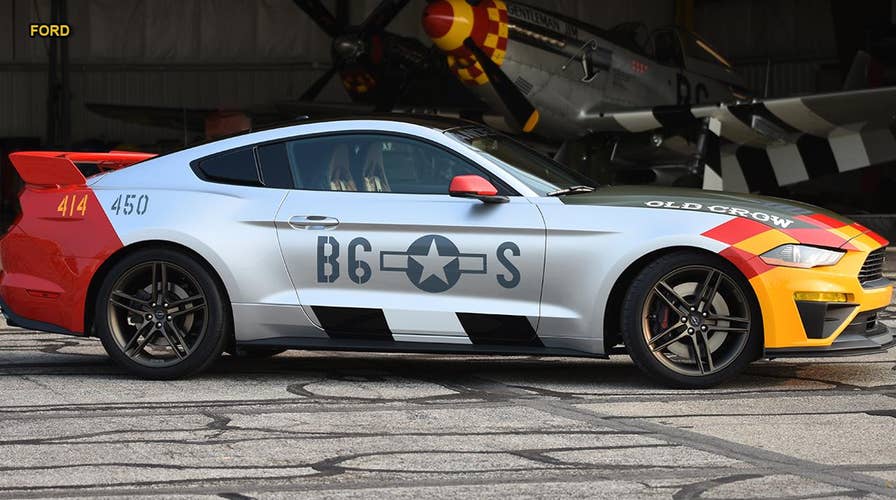Ford honors World War II flying ace 'Bud' Anderson with custom Mustang tribute car
Ford is paying tribute to one of the most decorated American airmen in history, C.E. 'Bud' Anderson, with a custom Mustang featuring a paint scheme designed after the one on his World War II P-51 Mustang fighter known as 'Old Crow.' The modified Mustang GT was built by Roush Performance for a charity auction benefiting the education programs of the Experimental Aircraft Association.
Ford’s latest Mustang is a tribute to one of the originals. Not a car, but an airplane and the man who flew it.

(Ford)
The modified Mustang GT was built by Roush Performance for a charity auction benefiting the education programs of the Experimental Aircraft Association (EAA). It features a paint scheme designed after the one on a World War II P-51 Mustang fighter known as “Old Crow” that was piloted by one of the most honored American airmen in history, C.E. Bud Anderson.
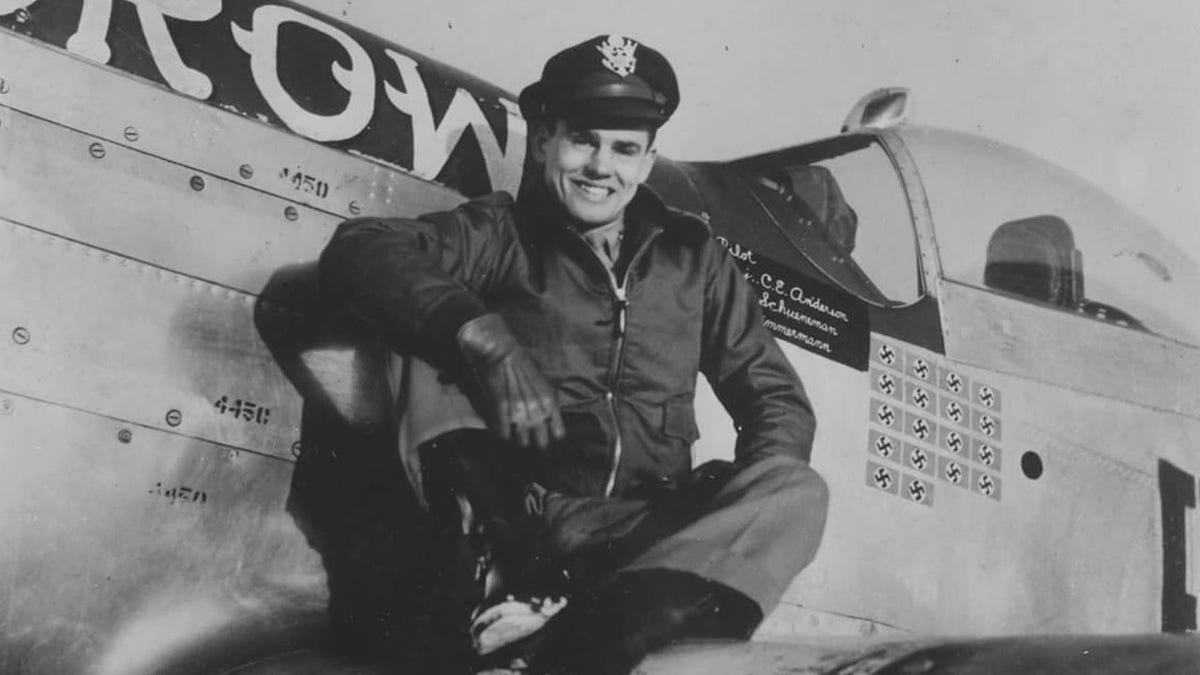
(cebudanderson.com)
Anderson became a triple ace during the war with 16 ¼ victories in the skies over Europe, despite having started learning how to fly just a year before he joined the service in 1942. A member of the 363rd Fighter Squadron, he finished the conflict as a major and had a long career in the Army and Air Force as one of the country’s top test pilots, returning to combat in both Korea and Vietnam along the way. In recognition of his achievements, his WW 2 helmet and flight jacket are now a part of the Smithsonian collection.
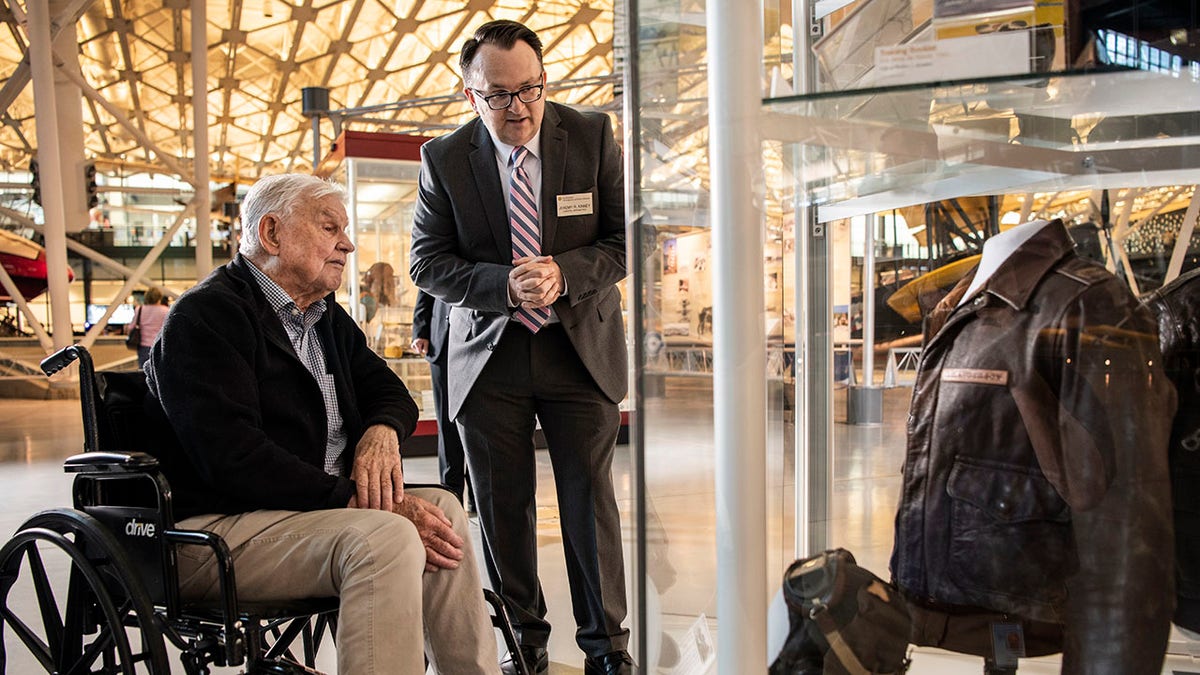
(cebudanderson.com)
The Californian retired from the service as a colonel in 1972 and became head of flight test operations at McDonnel Douglass, where he worked into the 1980s. Over the years, he piloted every type of aircraft imaginable, from fighter jets to bombers to cargo planes. He even flew helicopters, although he said he never officially got checked out to operate them.
The 97-year-old told Fox News that he flew until he turned 90, when he turned in his wings and driver’s license. He said he started driving on his family's farm before he got the latter and enjoyed fast cars in his youth.
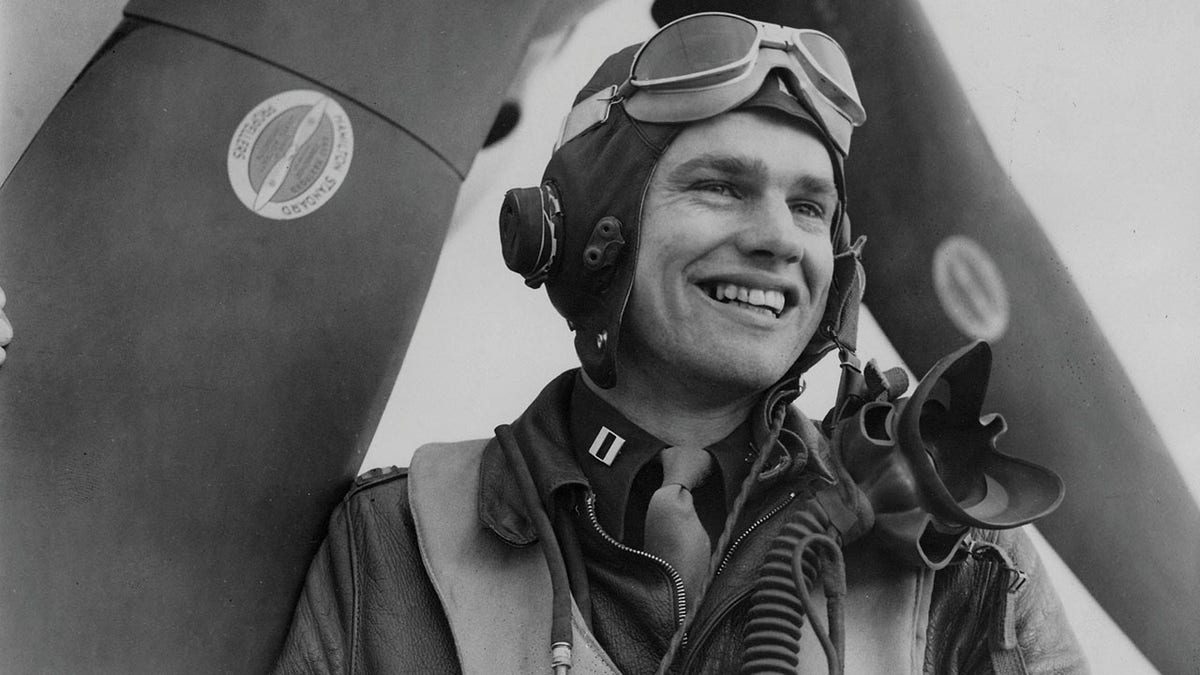
(cebudanderson.com)
He never owned a Mustang, but his first car was a 1939 Ford convertible with straight pipes that he bought a year before he went to war. Later, he had a 1957 Thunderbird and a 1967 Mercury Cougar that he really liked, before switching to “practical” family cars and trucks.
Planes were his true passion, though, and he has very fond memories of a few. He said the F-86 Sabre he flew in Korea was a “beautiful and honest aircraft that never surprised you,” but his all-time favorite was the Mustang, “for obvious reasons.”
“It got me through the war, but it was also good-looking and that Merlin engine had a special sound,” he said. “You could also fly it forever. My longest mission was six hours and 55 minutes and I still had some reserve left.”

(cebudanderson.com)
He modestly added that the epic flight took place on D-Day, when he was providing cover for the invasion of Normandy and didn’t see an enemy plane the entire time.
“It’s because we did our job,” decimating the German Luftwaffe in the weeks leading up to the operation, Anderson said.
Legend has it that Old Crow never got hit during Anderson’s 116 missions, but he revealed that it did take one bullet in a wing, likely from a rifle, that the mechanics repaired with a coin and polished over.
As for the nickname, he said he tells people he chose it because “crows are the smartest birds in the sky,” but that his drinking buddies know the real story.
After the end of his second tour of duty Europe, he handed the plane in and the last he knows it was used during the Allied occupation of Germany by a pilot who renamed it Pretty Pix. While 250 or so Mustangs survive today, he believes Old Crow was one of the thousands that were scrapped in the years after the war.

(Ford)
The Mustang being auctioned at the EAA’s Airventure show in Oshkosh on July 25 has a deeper connection to Anderson than just the paint. Roush Performance owner Jack Roush is also an aviation enthusiast who knows the pilot and has owned two P-51 Mustangs that he turned into Old Crow replicas.

(Ford)
The Ford also has a wing, but it’s upside down and meant to keep the rear of the car on the ground. Roush borrowed it from the upcoming 2020 Mustang Shelby GT500 and added a Ford Performance front spoiler to help balance out the downforce. The 5.0-liter V8 is equipped with a supercharger that makes it good for 710 hp and a cold air intake signed by Roush.
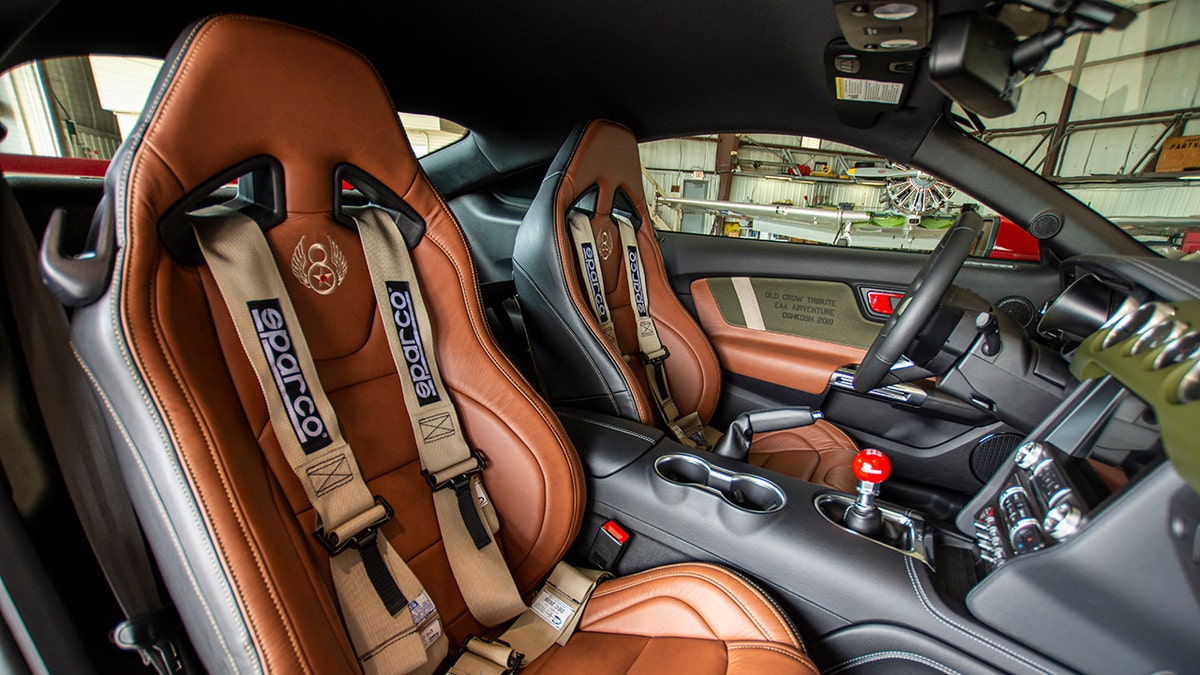
(Ford)
Inside, the rear seats have been removed and the front ones reupholstered in old school aircraft-style brown leather, while the doors and dash are trimmed with military green canvas. The shifter is topped by a bright red ball grip modeled after the fuel shut off and mixture control knobs in the P-51.
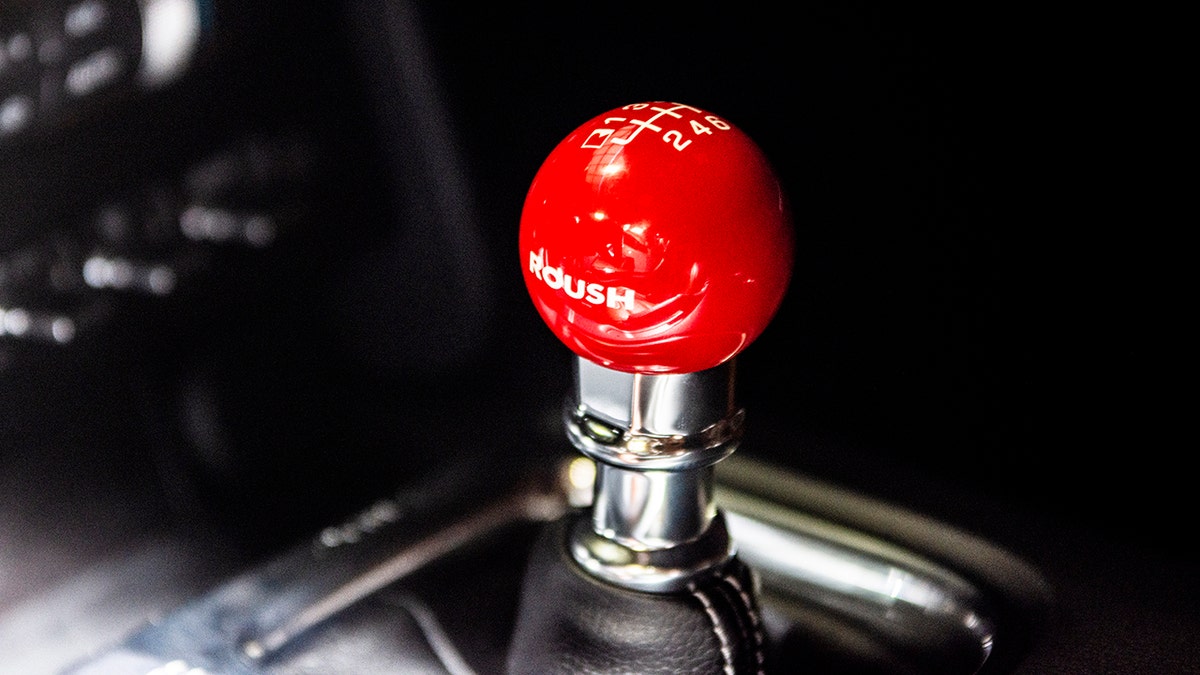
(Ford)
This marks the 12th car that Ford has donated a car to the event, with last year’s Eagle Squadron tribute selling for $420,000 to bring the grand total raised to more than $3.5 million.
Anderson will be there when Old Crow crosses the block and won’t say no if the winner of the auction offers to take him for a spin.
